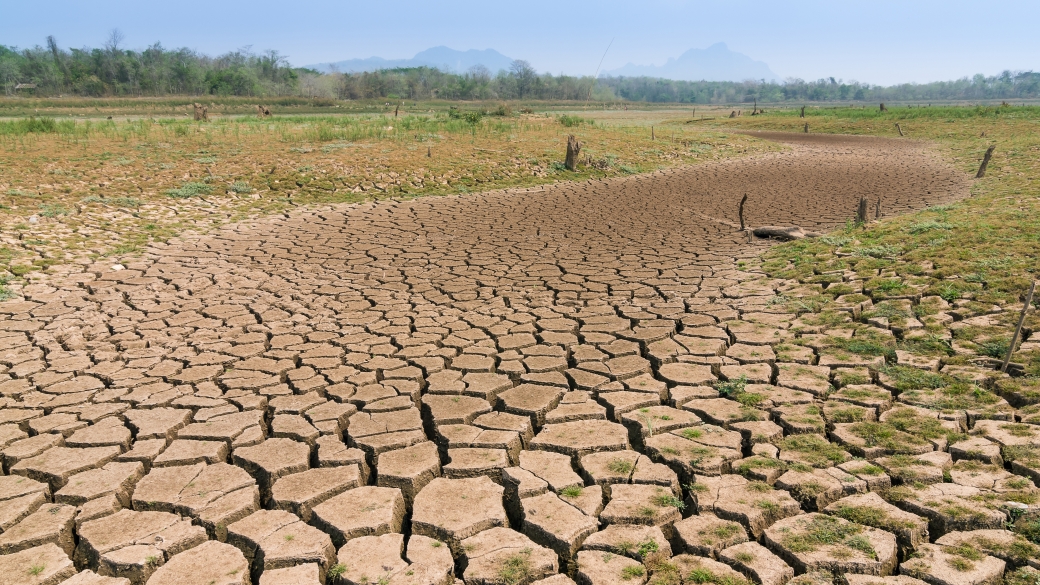This material belongs to: Zambia Daily Mail.
THE effects of corruption go as far as causing environmental degradation which culminates into climate change. Corruption has been distanced from the causes of climate change and yet it could top the list. In case you thought corruption was far from climate change, it is actually at the heart of it.
The effects of climate change are already being felt and efforts to mitigate and prevent it are top on the agenda of the global community. Everyone should realise that preventing corruption in the environmental sector, globally, would go a long way in preventing the effects of climate change. Climate change is a global issue and what one nation is doing should be another nation’s concern because of the global commons. One act of corruption in the environmental sector will contribute to environmental degradation and trigger climate change. Imagine the suffering when only a few greedy individuals benefit.
Below is how corruption contributes to climate change at various stages of environmental management:
Waste management: This is arguably one of the areas that contribute a lot to climate change. Wastes from industries either in gaseous or liquid form are supposed to be well managed. It is expected that before any industry is allowed to operate they should have systems that will ensure safe disposal of toxic substances. However, corruption will cause officers inspecting the industrial set-ups to deliberately pay a blind eye to some omissions in the environmental protection systems.
Eventually, effluents from the industries will be discharged in their harmful state onto the environment, thereby causing environmental degradation. Emission of gases such as carbon monoxide (CO) may deplete the ozone layer, once in contact, making it thin, thereby exposing us to more direct ultra-violet rays of the sun. Effective regulation of emissions may not be attainable because of corruption.
Further environmental impact assessments (EIAs) should be conducted professionally and independently if we are to control climate change. If environmentalists receive bribes from prospective investors and ignore the principles of an EIA, the quality of our environment will be compromised. The environment will in turn give us a compromised stay on earth.
Consequently, institutions like Zambia Environmental Management Agency (ZEMA) should at all times produce uncompromised EIA reports without any interference to favour any investor. If the EIA report says the project may compromise the balance of nature, why not heed expert advice to avoid future environmental catastrophes? Trying to reverse the effects of climate change may be a non-starter or very costly and so, as usual, prevention is cheaper than mitigation.
Forest management: It is a well-known fact that deforestation contributes to climate change. You may wonder why illegal cutting of trees is condoned. Corruption is one of the factors contributing to climate change because bribes are a blindfold to some officers responsible for managing and securing our forests. Timber harvesters should not be allowed to trade without production licences and those transporting timber cannot do without conveyance licences. The moment we see this we smell illegal transactions. Talk about the illegal and unregulated harvesting of our ‘black diamonds’ called mukula trees. How do people manage to export the logs? Corruption could be the answer. If harvesting of mukula is illegal, nobody is expected to be exporting it and go unchecked. This is an indication that money could have been exchanging hands in the process.
The rate at which the mukula trees have been harvested in the recent past poses a big challenge to the environment. In fact, if the cutting of trees goes unregulated, the ecosystem and the balance of nature in general are negatively affected. Consequently, apart from suffering the effects of climate change, tourism is also affected, as some habitats for wildlife are destroyed and the animals end up dying and may become extinct. Corruption harms the environment which, in turn, deals harshly with us, including the corrupt, whether those who bribe others or the ones who are bribed. To colleagues with the responsibility of managing our environment, you cannot afford to get bribes from illegal timber harvesters or industries and let them degrade the environment, unless you don’t respect the principles of environmental integrity and nature.
This calls for all stakeholders in the environmental sector to put corruption prevention top on their agenda. It is better to address root causes of the problem than the symptoms. Further, stakeholders worldwide should make sure that the global commons are well protected and challenge implementation of any projects that are not supported by the EIAs as they are not sustainable and are backed by corruption. Stakeholders should also ensure that EIAs are not a product of corruption.
Lastly, destroying our environment – all because of temporal corrupt benefits – is like biting the finger that feeds you. Who does that?
The author is an anti-corruption specialist.


